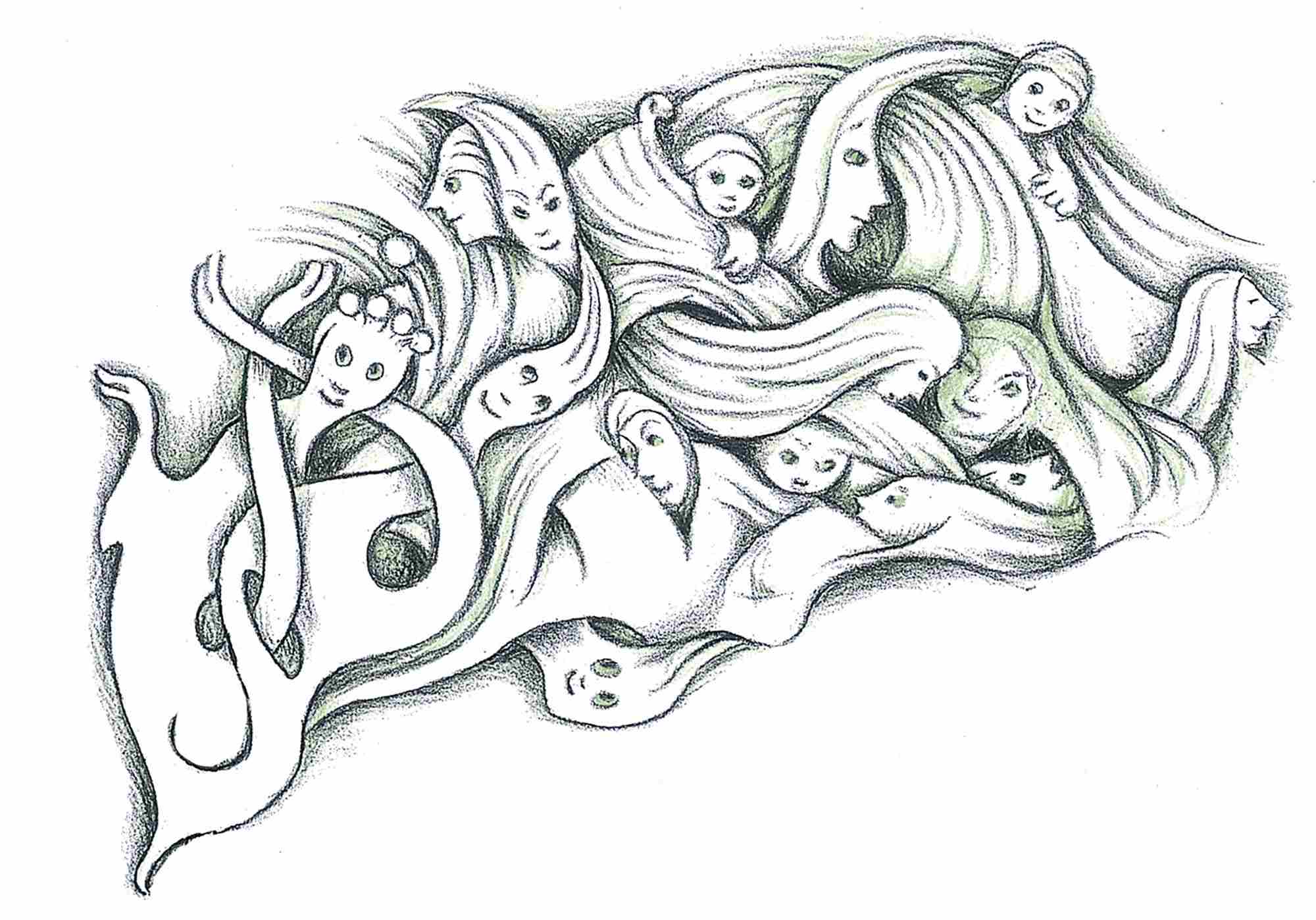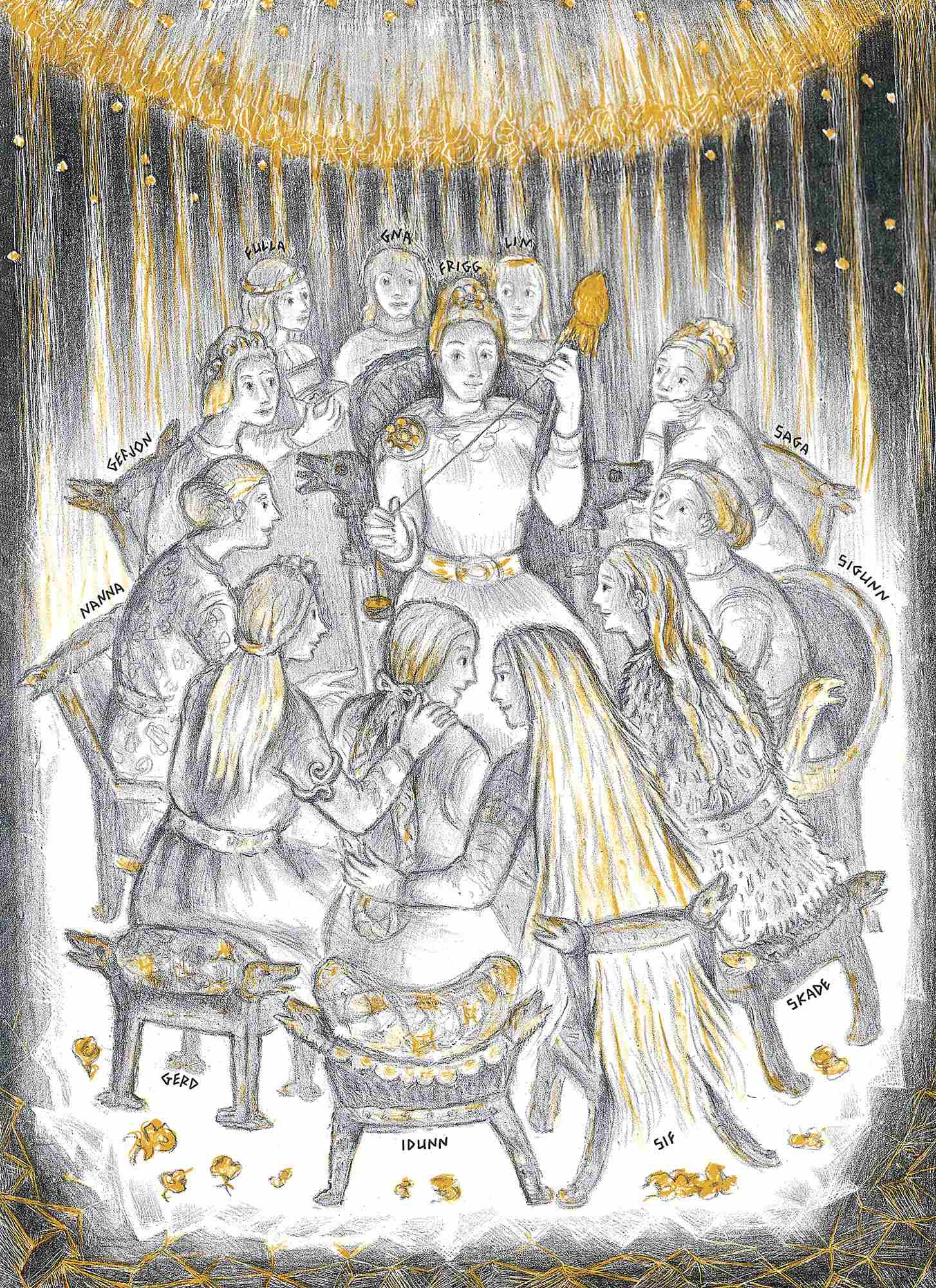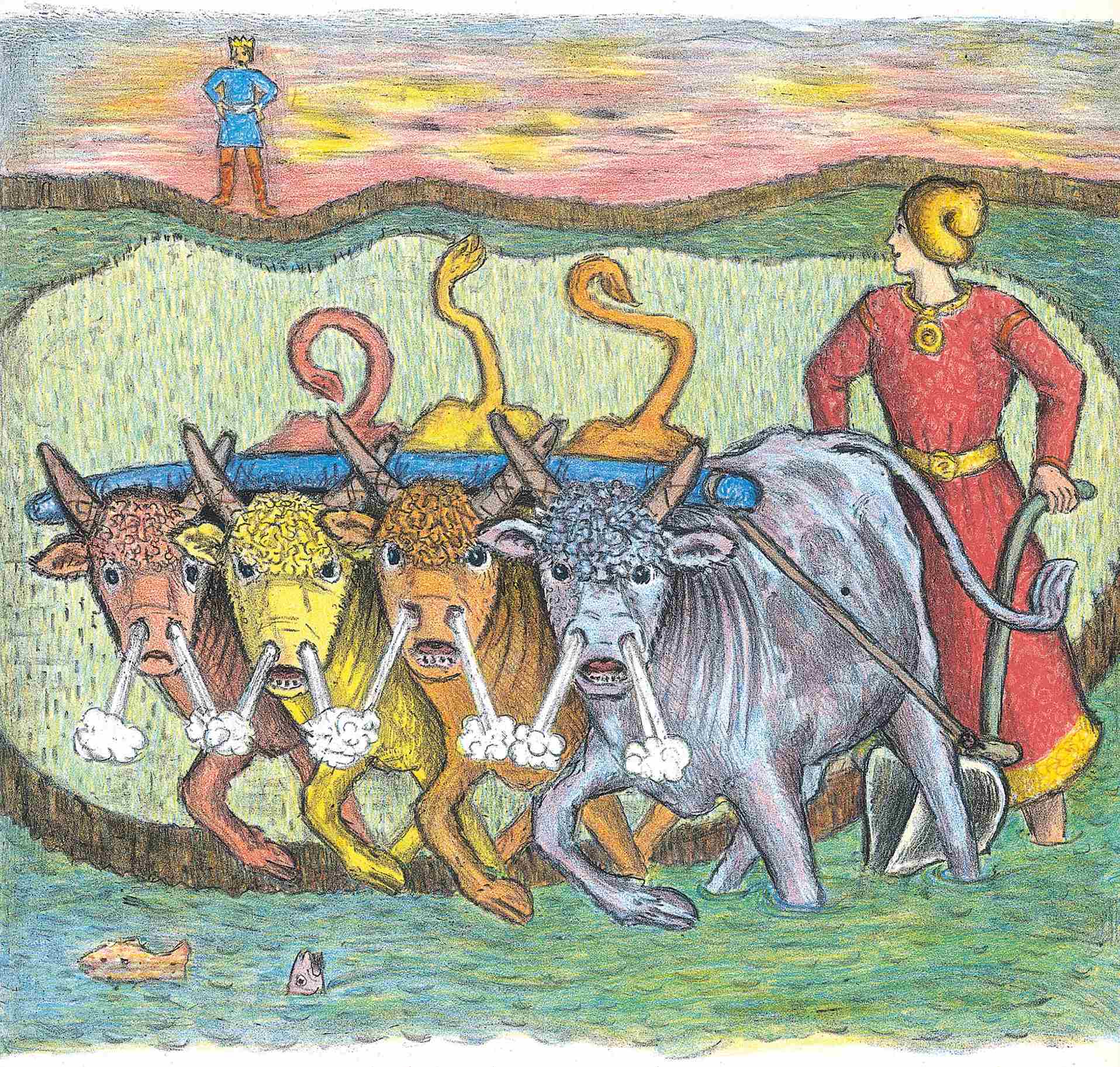

IF ANY hero preferred gentle conversation and the company of women to feasting and fighting, he could go to Freya’s hall, for Odin had given Freya permission to invite as many as half of the host to stay with her. Freya was a very busy hostess, for she not only looked after her own heroes, she also helped Odin entertain his heroes in Valhalla. So she did not have much time to spend with the other goddesses. They gathered around Frigg, Odin’s favorite wife.
Frigg was first among the goddesses, and lived in a resplendent hall. She was forever spinning yarn with her golden distaff and spindle, while she kept an eye on the households down on earth. When she noticed that a housewife worked her loom hard and well, she might snip off a piece of her own yam and send it down to her. No matter how hard the woman worked at her weaving, she could not use up the yarn given her by Frigg, for it never came to an end.
Three lovely young goddesses, Fulla, Gna, and Lin, were Frigg’s special ladies-in-waiting. Lin watched over those men and women whom Frigg had singled out to protect from harm. Gna ran her errands down to earth, for Gna had a very swift horse. Fulla carried Frigg’s chest and took care of her shoes, and Frigg kept no secrets from her.
The goddesses Eir and Var were also close to Frigg. Eir, the forebearing, was the goddess of healing, and all who were sick and suffering turned to her. Var, the true one, listened to the vows men and women made to each other, and punished those who broke them.

Frigg and the other goddesses were kept busy with their own duties. They rarely mixed into their husbands’ doings, though they guided them from behind the scenes. But once women sent up such fervent prayers to Frigg that she decided to give them a helping hand.
Far to the south two mighty peoples were making war upon each other, and Odin could not make up his mind which valiant host deserved to win. At nightfall the warriors hushed their war cries and put down their weapons. Then Odin decided to give victory to the army he would see first when the sun rose in the morning. During the night all the women of one of the countries raised their arms and prayed to Frigg to help them and protect their households. Frigg was moved. She knew about Odin’s decision, and she told the women what to do. Following her advice, they put on helmets and coats of arms. They drew their hair down to both sides of their faces and bound it under their chins, so that it looked as if they had beards. Then they gathered under the casement to the east, where Odin was apt to look out in the morning. As Frigg knew he would, Odin got out of bed, looked out, saw what looked to him like warriors with very long beards and asked, “Who are these long-beards?”
“The host you saw first in the morning, to whom you promised victory,” Frigg answered.
Odin kept his promise and threw his spear over the other host. The husbands of the long-beards won, and the inhabitants of that country have been called the “Langobards” ever since.
Two goddesses, Saga and Gefjon, looked and acted so much like Frigg and were so often seen in Odin’s company that many thought the three goddesses were one and the same.
Once Gefjon went with Odin to his favorite island, Fyn, in what is now Denmark. When she saw how delightful it was, Gefjon decided that she too would like to have a lovely green island like that. The sound was very wide, and there would be plenty of room for another blossoming island. So Gefjon disguised herself as a Midgard woman and went across the sound to the court of a king in what is now Sweden. She was a great storyteller, and was soon high in the king’s favor. When she asked if he would give her the land she could plow around in a day and a night, he laughed and said yes.

Gefjon rushed north into Jotunheim, married a jotun, and had four enormously strong sons. She changed her sons into bulls, hurried them back, and hitched them to her plow. They pulled so hard and so quickly that sweat streamed from their glistening sides and made a dense fog rise around them. The plow went so deep that the land was cut loose, and before morning came they had pulled it far out into the sound. The king was left with a big lake where the land had been. Gefjon fastened her new piece of land to a shoal, and that was the beginning of the beautiful island of Sjaelland, where Copenhagen is now.